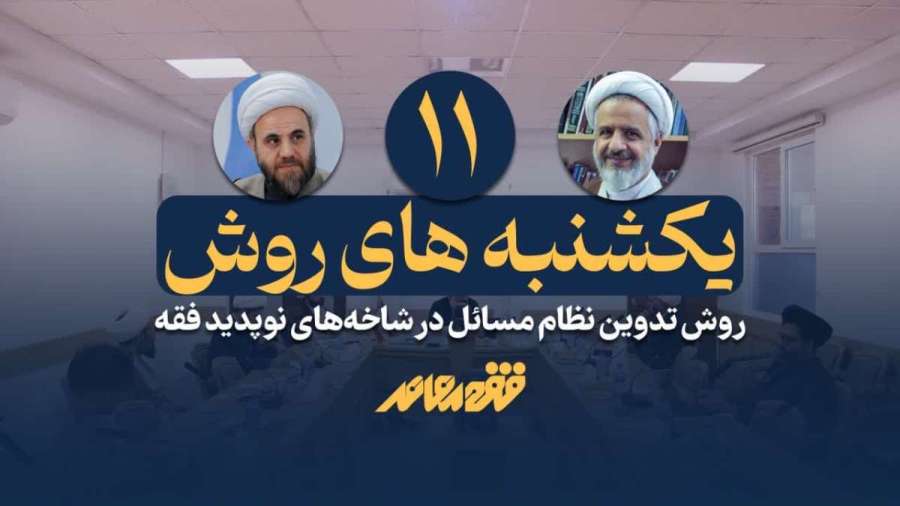Hujjat al-Islam wal-Muslimin Muhammad Ali Khademi Kusha, a member of the academic board of the Research Institute of Islamic Sciences and Culture, on the 23rd of May in the 11th scientific meeting “The method of developing a system of issues in newly emerging branches of jurisprudence” held by the Research Institute of Contemporary Fiqh, stating that we every day witness the emergence of new topics and issues, and jurisprudence is responsible for answering questions. Due to this necessity, we have arrived at a model for developing a system of issues in emerging issues that has jurisprudential support. As this model is used in the field of thematics, it is also useful for the structuring of problems.
Hujjat al-Islam wa al-Muslimin Khademi Kusha stated that the Imami jurists have often focused on the topics of discussion in the newly created issues, but in the newly created issues, today we face issues that are basically ambiguous and stated: Our proposed structure is similar to the structure used by the predessors jurists. And at first, the essence of the subject and its components and conditions are studied to determine which titles correspond to this subject.
He added: In the next step, in addition to the essence of the issue, with the premise that in our jurisprudence, the goals of creating the issue and the goals of the active verb are effective in the issue, we must examine the issue from the perspective of the functions and aims that the users pursue in it. And in the third stage, with the presupposition that the works of the subject are effective in the judgment of the subject, for this reason, we should also examine the works.
Hujjat al-Islam wa al-Muslimin Hasan-Ali Ali-Akbarian, a critic of the session and a member of the academic board of the Research Institute of Islamic Sciences and Culture, criticized the content and stated that this triple structure has transparency in the theology, but it suffers from contradictions in the formulation of the system of issues. This is because if we say that in order to understand each issue that has an issue and ruling, you should identify its goals, effects, and essence, then issue a fatwa, then contradictions will be necessary in many issues. Does this mean the essence of the issue regardless of the goals? And its works have a Shari’ah ruling, and so do the goals and works, each one alone.
He said: A Shari’ah issue has three dimensions, each of these three forms a part of the issue, and all three of them are involved in the same issue. The involvement of these three dimensions in problemology is clear, but if we want to involve these three dimensions in the problems of the system, it is necessary to separate the rulings of these three from each other.
He stated: In these objectives, which are the goals of the producer, distributor, and consumer, are the goals of the producer involved in the ruling of the producer or are they also involved in the ruling of the distributor and consumer? If it is involved, it has two states: it must be seen that the goal is inseparable, that is, it is part of the verb, or the goal may or may not be achieved. We must distinguish between these two situations. If it is inseparable, the goal is the same as the effect, and the goal and the effect become one thing, but if it is possible for the goal to be realized or not, then it cannot be said that the goal is involved and the discussion becomes conditional. Thus, it must be clarified that these goals and effects, whether their rulings interfere with the ruling of the essence of the matter or must be discussed separately.
It must be mentioned that the “methodology” meetings of the overnights are held at the Research Institute of Contemporary Jurisprudence.

